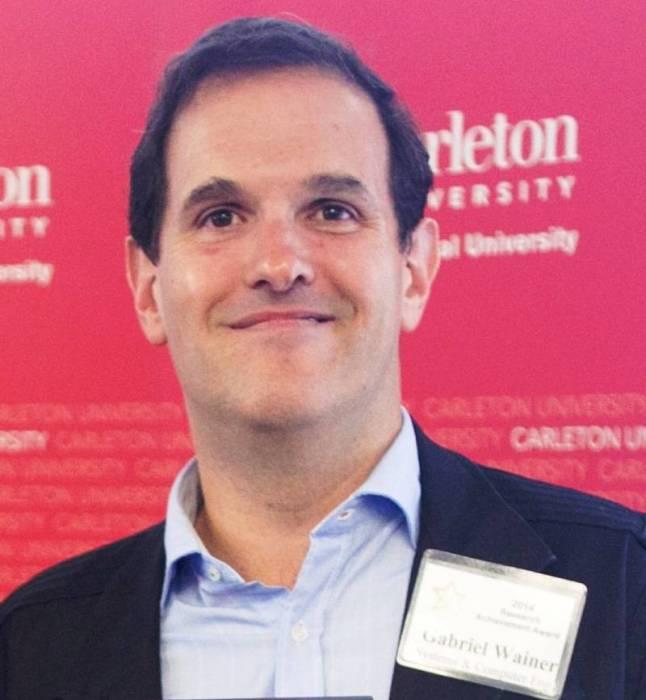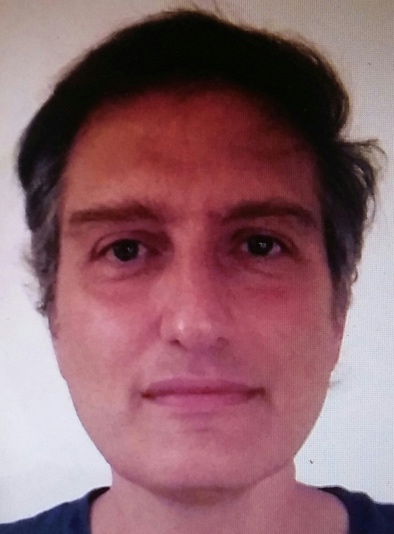|
Title: Discrete-Event Modeling and Simulation for Development of Embedded and Real-Time Systems
Date:
Wednesday - October 18th, 2017
Abstract:
Embedded real-time software construction has usually posed interesting challenges due to the complexity of the tasks these systems have to execute. Most methods for developing these systems are either hard to scale up for large systems, or require a difficult testing effort with no guarantee for bug-free software products. Although formal methods have showed promising results, they are difficult to apply when the complexity of the system under development scales up. Instead, systems engineers have often relied on the use of modeling and simulation (M&S) techniques in order to make system development tasks manageable. Construction of system models and their analysis through simulation reduces both end costs and risks, while enhancing system capabilities and improving the quality of the final products. M&S let users experiment with "virtual" systems, allowing them to explore changes, and test dynamic conditions in a risk-free environment. This is a useful approach, moreover considering that testing under actual operating conditions may be impractical and in some cases impossible.
In this talk, we will present a Modeling and Simulation-based framework to develop embedded systems based on the DEVS (Discrete Event systems Specification) formalism. DEVS provides a formal foundation to M&S that proved to be successful for different complex systems. This approach combines the advantages of a simulation-based approach with the rigor of a formal methodology. We will discuss how to use this framework to incrementally develop embedded applications, and to integrate simulation models with hardware components seamlessly. One of the main aspects of the methodology is that it can be integrated with models of the environment in which the embedded controller will act. We will show how the Cell-DEVS and the QSS methods can be used for this task. We will introduce the main characteristics of the Cell-DEVS and QSS methods, and will show how to model physical systems. We will introduce an integrated environment that deals with these issues, orchestrating a cellular-based simulator (CD++), a GIS (GRASS) and data visualization (Google Earth), to simulate behavior and analyze results supporting the decision making for varied environmental scenarios.
Our approach does not impose any order in the deployment of the actual hardware components, providing flexibility to the overall process. The use of DEVS improves reliability (in terms of logical correctness and timing), enables model reuse, and permits reducing development and testing times for the overall process. Consequently, the development cycle is shortened, its cost reduced, and quality and reliability of the final product is improved.
Short Bio:
GABRIEL A. WAINER, FSCS, SMIEEE, received the M.Sc. (1993) at the University of Buenos Aires, Argentina, and the Ph.D. (1998, with highest honors) at the Université d’Aix-Marseille III, France. In July 2000 he joined the Department of Systems and Computer Engineering at Carleton University (Ottawa, ON, Canada), where he is now Full Professor and Associate Chair for Graduate Studies. He has held visiting positions at the University of Arizona; LSIS (CNRS), Université Paul Cézanne, University of Nice, INRIA Sophia-Antipolis, Université de Bordeaux (France); UCM, UPC (Spain), University of Buenos Aires, National University of Rosario (Argentina) and others. He is the author of three books and over 350 research articles; he edited four other books, and helped organizing numerous conferences, including being one of the founders of the Symposium on Theory of Modeling and Simulation, SIMUTools and SimAUD. Prof. Wainer was Vice-President Conferences and Vice-President Publications, and is a member of the Board of Directors of the SCS. Prof. Wainer is the Special Issues Editor of SIMULATION, member of the Editorial Board of IEEE Computing in Science and Engineering, Wireless Networks (Elsevier), Journal of Defense Modeling and Simulation (SCS). He is the head of the Advanced Real-Time Simulation lab, located at Carleton University's Centre for advanced Simulation and Visualization (V-Sim). He has been the recipient of various awards, including the IBM Eclipse Innovation Award, SCS Leadership Award, and various Best Paper awards. He has been awarded Carleton University's Research Achievement Award (2005, 2014), the First Bernard P. Zeigler DEVS Modeling and Simulation Award, the SCS Outstanding Professional Award (2011), Carleton University's Mentorship Award (2013), the SCS Distinguished Professional Award (2013), and the SCS Distinguished Service Award (2015). He is a Fellow of SCS.
|
|
Title: Cores, threads, objects: re-knead all for a new generation PDES
Date:
Thursday - October 19th, 2017
Abstract:
Rising trends in the architecture of hardware computing platforms has historically given rise to the introduction of new paradigms for software development, or to rethink existing paradigms in order to make them achieve targets not feasible before. In this talk we provide insights on how the Parallel Discrete Event Simulation (PDES) field has been impacted by rising hardware trends, such as the shift towards massively parallel many-core machines offering the support for fully-sharing memory among concurrent threads. As we will point out, major advancements have been achieved by the side of both the capabilities of the underlying PDES environment and the way application programmers can benefit from the new generation PDES that stands in front of us. We will also discuss open issues and hard problems to be tackled along the path of making such a new generation PDES consolidated reality.
Short Bio:
Francesco Quaglia received the MS degree in Electronic Engineering in 1995 and the PhD degree in Computer Engineering in 1999, both from Sapienza University of Rome. He has been Researcher and then Associate Professor at the same institution from 2000 to 2017. Currently, he is Full Professor at the University of Rome Tor Vergata. His main research interests are in the areas of high performance computing, dependable computing, transactional systems, operating systems, automatic code parallelization, performance analysis and optimization.
|

